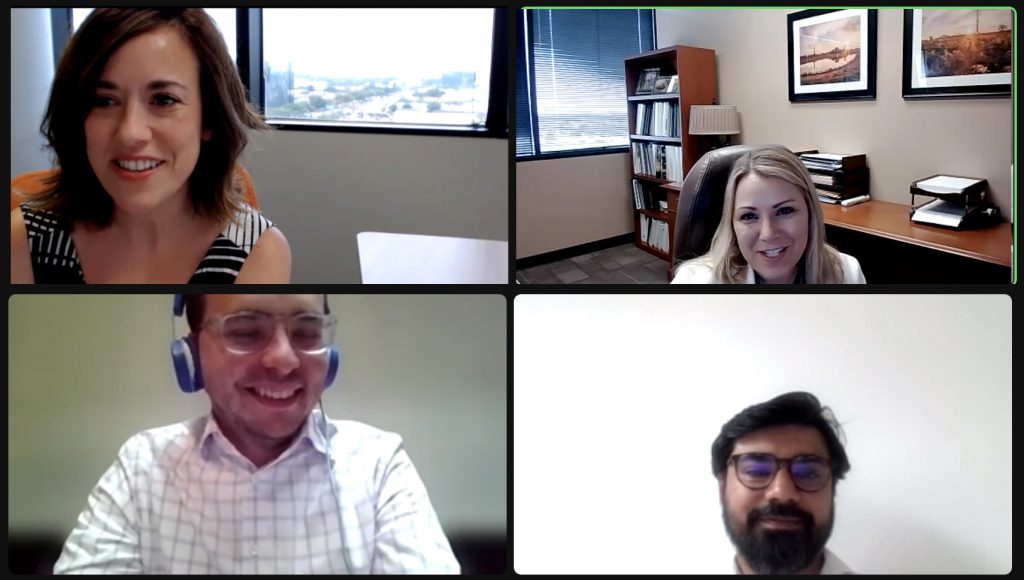Is the hybrid workforce here to stay? Energy Workforce Members heard from PwC in a third session of a labor market series, focusing on helping managers navigate the hybrid workforce.
This episode of the series, sponsored by Human Resources Committee, was moderated by Advisory Board Member and committee chair Bonnie Houston, CAO, NOV, Energy Workforce COO Molly Determan and speakers were Saurabh Mittal and Zach Horowitz, PwC.
Horowitz kicked off the session by posing questions to the audience, including how to support managers of the hybrid workforce.
“There is a need to reimagine the workplace of tomorrow; 72% of workers want a mix of remote and in-person working. Remote work is a priority for young employees as 45% of Gen Z and 47% of Millennials would give up more of their future earnings for the option to work remotely. These statistics shows flexible work is here stay, as employees want the best of both worlds – working remotely and in-person.”
Zach Horoqitz, PwC
Managers are feeling wedged between leadership priorities and employees’ evolving expectations in the hybrid workforce, Horowitz said. They play a critical role in shaping the organizational culture and setting the right tone for employees to lean into the new ways of working. However, 74% of managers say they don’t have the power to make modifications based on employee preference. Managers face a different set of challenges in the hybrid workplace, such as clearly communicating and setting expectations, measuring team performance, impact and success, being inclusive and helping employees feel connected.
Horowitz said that PwC advises its clients to view their organization through four key lenses — collaborators, connectors, residents and rovers. These persona classifications can be leveraged by managers to enable reimagining the hybrid work environment. This goes from residents, such as engineers, who need to be in the office 90-100% of the time to rovers, such as sales, who only need to be in the office 0-20%.
Mittal noted managers need to be very transparent when establishing rules around hybrid working and making it more effective.
Mittal wrapped up looking at the three “no regret” moves for managers. By emphasizing inclusive leadership, equipping managers with the right technology, and establishing clear business rules around new ways of working, leadership will find a better trust and sense of belonging within the team, as well as streamline productivity and collaboration.
Roni Ashley, Director Operations, writes about the Energy Workforce’s membership, workforce development and more. Click here to subscribe to the Energy Workforce newsletter, which highlights sector-specific issues, best practices, activities and more.





